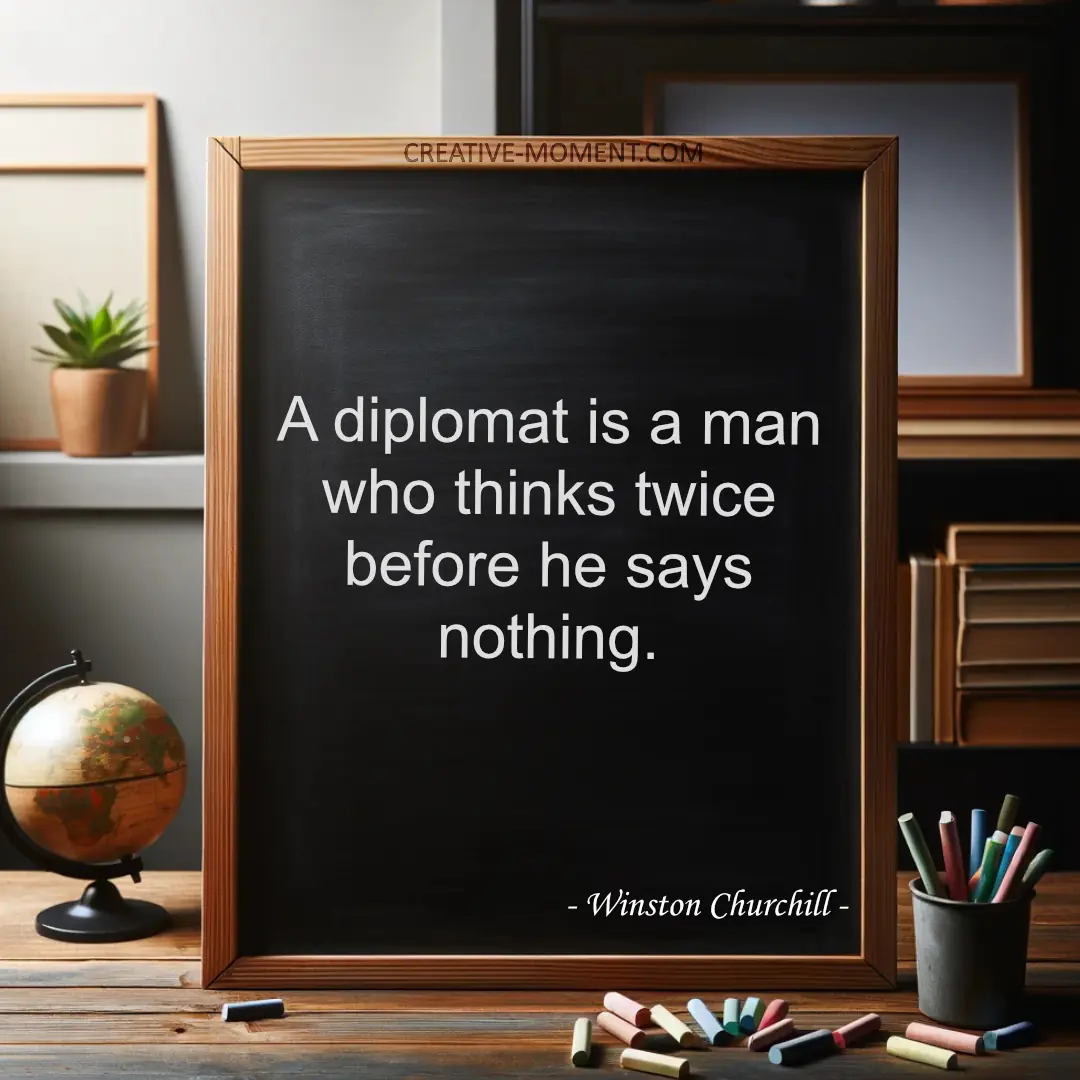Saying: A diplomat is a man who thinks twice before he says nothing
Info
- Title: A diplomat is a man who thinks twice before he says nothing
- Type: Sayings
- Category: Humor and Wit
- Print: Download as PDF for printing
The British statesman Winston Churchill was renowned for his sharp wit and humorous remarks. His quote “A diplomat is a man who thinks twice before he says nothing.” reflects his insightful observations on diplomacy and communication. Churchill often employed irony and pointed criticism to reveal deeper truths about social and political events.
Herkunft und Verwendung des Spruches
This quote originated from Winston Churchill himself, expressed in English as “A diplomat is a man who thinks twice before he says nothing.” It arose from his political career and numerous diplomatic challenges he faced as Prime Minister during and after World War II. Churchill's phrase has been widely used in political and diplomatic contexts, appearing frequently in speeches and literature.
Bedeutung und Interpretation des Spruches
Churchill's remark ironically characterizes a diplomat's traits. Diplomacy is recognized as the art of restraint and thoughtful action. A diplomat carefully evaluates the implications of silence and when words could potentially cause more harm than silence.
The core of the statement highlights that silence can be as powerful a form of communication as spoken words. Diplomats regularly face the challenge of expressing clear positions without provoking conflicts or damaging relationships. Choosing consciously not to speak often demands careful deliberation.
The conscious decision to remain silent can carry different meanings:
- Avoidance of unnecessary conflicts
- Preservation of diplomatic relationships
- Intentional use of nonverbal signals
At the same time, this saying humorously suggests that diplomats might overly prioritize restraint. Churchill subtly critiques the tendency to withhold crucial statements or act excessively cautiously. A diplomat who consistently remains silent might miss opportunities for open and honest communication.
Today, the quote is often cited to illustrate the balance between necessary discretion and clear communication. It emphasizes that effective diplomacy involves not only careful word usage but also the strategic deployment of silence as a communication tool.

